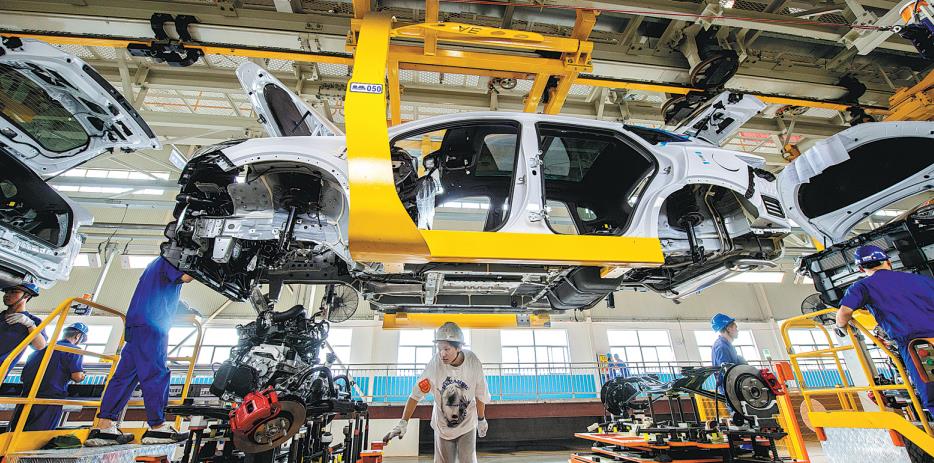Electric cars hit highway to the future


The market situation has started to change. Chinese and international carmakers operating in China plan to launch 54 NEV models this year, most of them for the mainstream market, according to Everbright Securities.
Qin, from Nio, said that while most carmakers are starting to offer electric vehicles, being electric alone is not enough to survive in an increasingly competitive market.
"The next litmus test lies in whether these vehicles are smart, with autonomous driving as the most prominent feature," Qin said.
Nio said China should place greater emphasis on chip design and production, as smart vehicles will require more-advanced semiconductors than those powered by gasoline.
Wang Jun, head of Huawei's smart car business unit, said the company is working on offering driverless solutions, which are expected to be announced around 2025, after which the emphasis will be on smart onboard functions.
"Vehicle cabins will become smart spaces. We don't know the exact extent of the possibilities, but there are boundless opportunities," Wang said.
He Xiaopeng, CEO of Chinese startup Xpeng, said smart vehicles will be like smartphones.
"They will be much more than transportation tools, just as the primary function of smartphones is not making calls. In fact, we have noticed that many of our customers remain in their vehicles for quite a while after they have parked them," he said.
Xpeng said that as sales of electric cars continue to rise, the popularity of vehicles with some smart functions will surge in the next one to two years.
The influx of Chinese technology companies, including Huawei and Baidu, into the car market is helping to speed up this process.
"I would say that 2023 will be a turning point. In 2025, 60 percent of new cars sold in first-tier cities will be electric, and 50 percent of them will have smart features," He said.
Zu Sijie, chief engineer at SAIC Motor, a partner of GM and Volkswagen, said Chinese carmakers will become leading players globally in the era of smart vehicles.
International companies took the lead in introducing the latest technology into local car joint ventures in the age of gasoline vehicles. In turn, Chinese companies are performing this role as vehicles become smart, connected and autonomous, Zu said.
Chinese companies are moving quickly and investing heavily in such technology.
SAIC has earmarked a budget of 300 billion yuan ($46.29 billion) by 2025, with the aim of becoming a technology company focused on smart and electric vehicles.
Li Jun, CEO of SAIC subsidiary Z-One, said it has completed an "electric car architecture" almost capable of Level 3 functions-allowing drivers to take their hands off the steering wheel and their eyes off the road.
Such an architecture capable of Level 4 functions-enabling vehicles to drive themselves under most circumstances-would be unveiled in 2023, he said.
Z-One has also launched a digital platform that functions like Google's Android system for smartphone makers and users.
The platform, the first of its kind in the auto industry, allows software developers to code and release car-based applications in an app store. Car owners can download and install them in their vehicles, making each car unique in terms of user experience.
"We want to transform limited car cabins into limitless possibilities," Li said.
























